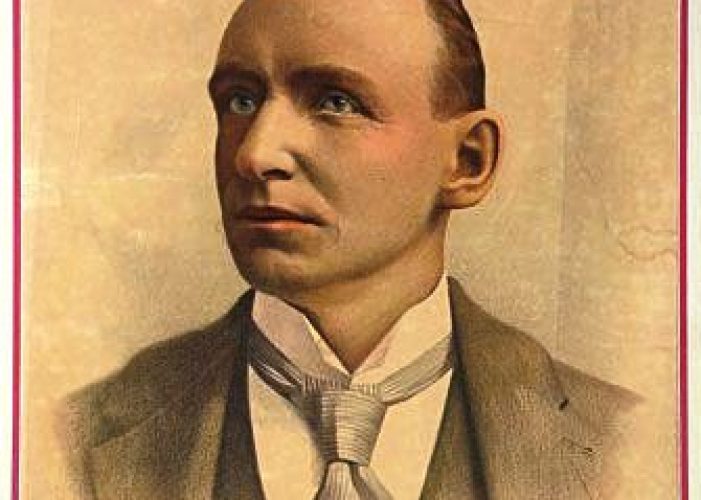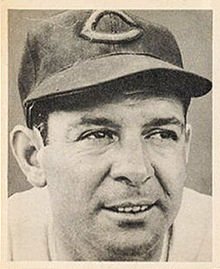On November 15, 1895 — 1895 – Future Hall of Famer Cap Anson makes his stage debut in A Runaway Colt. Aside from forgetting a few lines, Anson does quite well.
Charles Hoyt, one of the most popular light comedy writers of
the time, was both a baseball fanatic and a friend of Cap Anson.
Hoyt was constantly looking for new ideas and the captain suggested
on many occasions that Hoyt write a play about baseball. In May of
1895 Hoyt approached Anson with a proposal for a play in which
Anson would portray himself as the manager of the Colts. The
captain liked the concept, and Hoyt set to work, returning in 2
months with a script. The full title of the play was ‘A Runaway
Colt.’ A dalliance with facts, folks and other things pertaining to the
noble game of baseball.
The play concerned a handsome young man named Manley
Manners, a minister’s song and college baseball player who receives
an invitation to pitch for Chicago, but runs into opposition from his
parents, who view baseball as a low-class sport and an unfit calling
for the son of a reverend. The local bishop, however is a baseball
fan, and invites a ‘Mr. Adrian’ to dinner to meet the Manner’s
family, who do not know that their guest is actually Cap Anson,
manager of the Colts. The captain extols the merits of baseball life,
impresses Manley’s parents with his manners (especially when he
turn down a glass of wine), and ultimately succeeds in changing the
father’s opinion of the game.
Later in the four-act melodrama, a rival suitor devises a
scheme to steal Manley’s fiancée, Mercy Given. He convinces
Manley’s brother, a bank teller, to wager $2,000 of bank funds on
the Colts to win an upcoming game against Baltimore, all the while
planning to bribe Anson to throw the contest and bring shame to the
Manley family. The villain would then demand Mercy’s hand in
marriage as his price for getting the Manley family out of its jam.
Anson, of course, is too honest to lose a game for money, and decides
to trust the youngster to pitch the big game.
‘You mustn’t worry,’ he tells Manners.’ He can’t do anything
to you, and if he tries, I’ll stand by you.’
3
Manley replies, in the typically stilted dialogue of 1890s
melodrama, ‘Thank you, captain. In a case of trouble, I’d rather
have you for a friend than any man on earth. I won’t worry and I’ll
pitch pennant ball for you as long as my arm lasts.’
The final act takes place with the audience behind the
grandstand at the West Side grounds, with slap stick creating the
sound of ball on bat and on stage characters describing the action on
the field. In the final scene, the Colts are down by a run in the
bottom of the ninth inning against the Orioles, but Bill Dahlen
(actually the actor playing him) singles, bringing Anson to the plate.
The captain saves the day with a home run, ending the play on a
happy note.
Hoyt was known for his witty dialogue and the script includes
several examples of his style of humor. When Manley’s sister
suggests to the bishop that they pray for victory with Anson at bat
and the game on the line, the bishop replies, ‘My dear, it is too late
to pray. Make all the noise you can and rattle the pitcher.’ Hoyt also
makes a joke at the expense of the weak-hitting New York Giants,
Anson, concealing the nature of his vocation, explains to the
Manners family that he wants to hire Manley ‘to handle leather
goods and in certain cities to deal with strikers.
‘There are not stickers in New York, are there?’ asks Mrs.
Manners Anson replies, ‘There haven’t been any this year in my
business.
Another inside joke occurs in the third act, set at the Colts
spring training in Florida. A love-struck hotel maid follows Anson
around all day, and the captain orders Manley not to leave his side.
‘Don’t leave me alone with her,’ commands Anson.
‘If you do, I’ll expel you-or worse yet, trade you to Louisville.
The captain busies himself with the Colts during the summer
months of 1895 while Hoyt hired a cast and crew. Anson had not yet
seen the complete script, but discussed his future role with good
4 humor.
‘I shall rehearse the piece for some weeks, of course, but I
expect to be a very bad actor,’ he said in July. ‘I do not know who
will be the other members of the company, but I have not tried to
get another ball player. I will star and Hoyt will take the chances.’
‘Do you intend playing ‘Hamlet?’ asked a reporter?
‘No, I think I will stick to first base, I’m more used to it,’
‘What do you think of the elevation of the stage?’
Anson smiled at the reporter, ’Well,’ he said, ‘I think it could
stand to be raised a little, especially in some theaters, where the
orchestra gets between the actors and the audience.
Other ballplayers have trod the boards, including Mike Hoey,
who played a small role in Hoyt’s play in the late 1880s and spends
his off-seasons reciting ‘Casey at the Bat’ in Vaudeville houses.
Another man who knew his way around a theater was John
Ward, who was married to Helen Dauvray, a famous actress of the
time. Ward suggested that Anson would find a Broadway audience
much different than the crowds at a baseball game, ‘When the fans
were in the bleachers,’ said Ward, ‘they were too far away from
Anson for the old man to hear the bon mots they cracked at his
expense. But up in the gloaming next to the roof they are within ear
shot of him, and he can hear every word.’
[jetpack_subscription_form title=”Subscribe to This Day In Baseball” subscribe_text=”Get our latest Posts in your in box” subscribe_button=”GO” show_subscribers_total=”0″]




